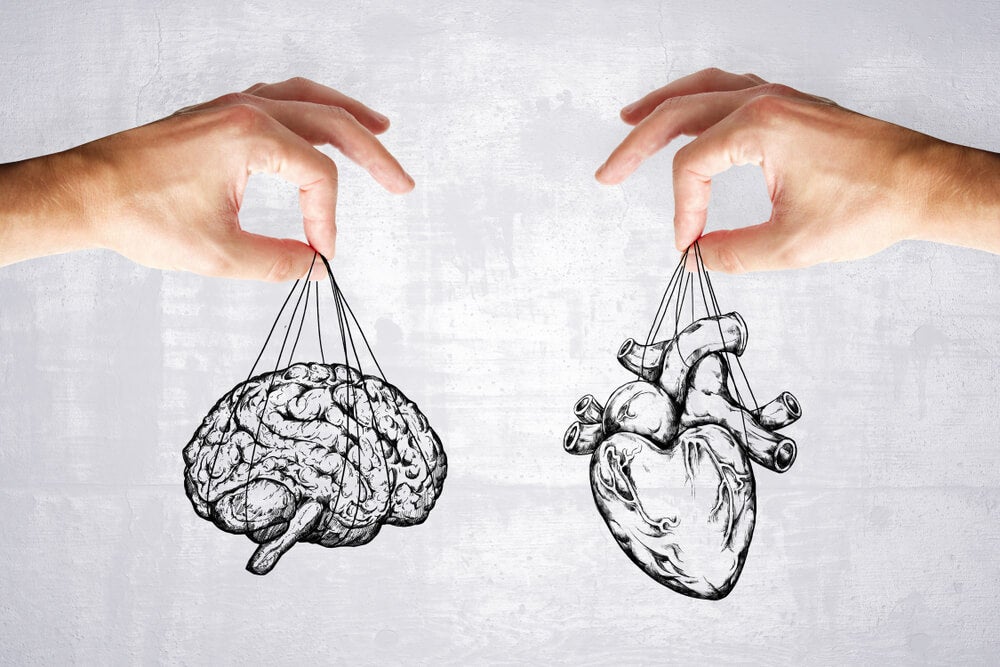What is the brain’s response to separation?He’s in deep distress. In addition, science has shown that the person who suffers the most in these cases is not the heart, but a series of brain structures that interpret this decision or abandonment as an injury, as an impact they do not know how to treat. The brand produces physical pain, exhaustion and lack of energy.
Few facts have generated more inspiration throughout our history than emotional terms, we have at our disposal several songs, several poems and books taken directly from all the broken pieces of the hearts of the artists, in each of these legacies that we frequently resort to and With fascination to find comfort to our own displeasures, a word is repeated almost like a mantra : pain.
- “How I wish.
- How I want you to be here.
- Are we just two lost souls swimming in an aquarium.
- Year after year.
- Running on the same floor as usual?-Pink Floyd-“.
Layoffs, betrayals and abandonment create great pain, we all know that. And this fact, as such, cannot be more curious, there is no need to be beaten, scratched or burned, because a separation generates a combination of all this without touching our skin.
It is the path of suffering that transcends each of our fibers, tendons and joints. Everything hurts, all fatigue, the world collapses and we fall into an emotional storm that passes away from our hearts, to which we blame ourselves.
Real suffering occurs in the brain. Let’s see how the brain works in these situations.
To talk about what happens in our brain after an end, we have to put aside music, poetry and literature and go directly to the world of neuroscience, we are aware that, for many, love and love cannot be analyzed in the laboratory. However aseptic and cold it may seem at first glance, it is precisely this science that provides the most revealing answers.
In 2011, Columbia University cognitive neuroscientist Edward Smith conducted a series of studies and tests that could not be more surprising and thanks to advances in diagnostic techniques and resolution of MRI imaging he was able to see what was going on in people’s brains. who had just ended a romantic relationship.
The most illuminated brain structures, those that showed the most synaptic activity, were the same ones that work when we suffered a burn. Pain, so to speak, is real to the brain.
Let’s know more data
Why does suffering last so long in times of mourning?Why is it so painful to remember: Why does our mind remember this face, this name, and this past story?The answer is in our neurotransmitters.
For Helen Fisher, the famous anthropologist specializing in emotional relationships, love is a motivating system, an impulse that seeks to offer a series of rewards to the brain, these reinforcements are attachment, intimacy, commitment, sex, relief from loneliness, etc.
So, during an end, what the brain experiences mostly is the loss of these dimensions, and when that happens, it panics, because everything is missing, because the whole system of rewards, nutrients and safety is lost, that’s why it enters. a state of withdrawal, the same as an addict when not using medications or a certain substance.
As we said at the beginning, the impact of abandonment or separation is felt in the brain in the same way as physical pain, when someone we love leaves doesn’t take long to release a lot of stress hormones, such as cortisol and epinephrine. What does that mean? Basically, emotional distress becomes physical and these chemicals harm many of our functions.
Our brain is like a frightened organism. In a way, this forces us once again to set aside the idea that this organ acts like a computer, nothing is as subject and connected to emotions as our brain, every connection, every convolution and every deep region of its fascinating structure lives in the feelings and impulses that, in the end, make us human.
The human brain loves love. The loss of this dimension ends with it and thus ends up reacting intensely, however, if there is one thing our brain can also do is recover well, it will need time, calm and new approaches, but everything will be fine. . We have enough skills to recover from all kinds of adverse events, and when we do, we get stronger.

